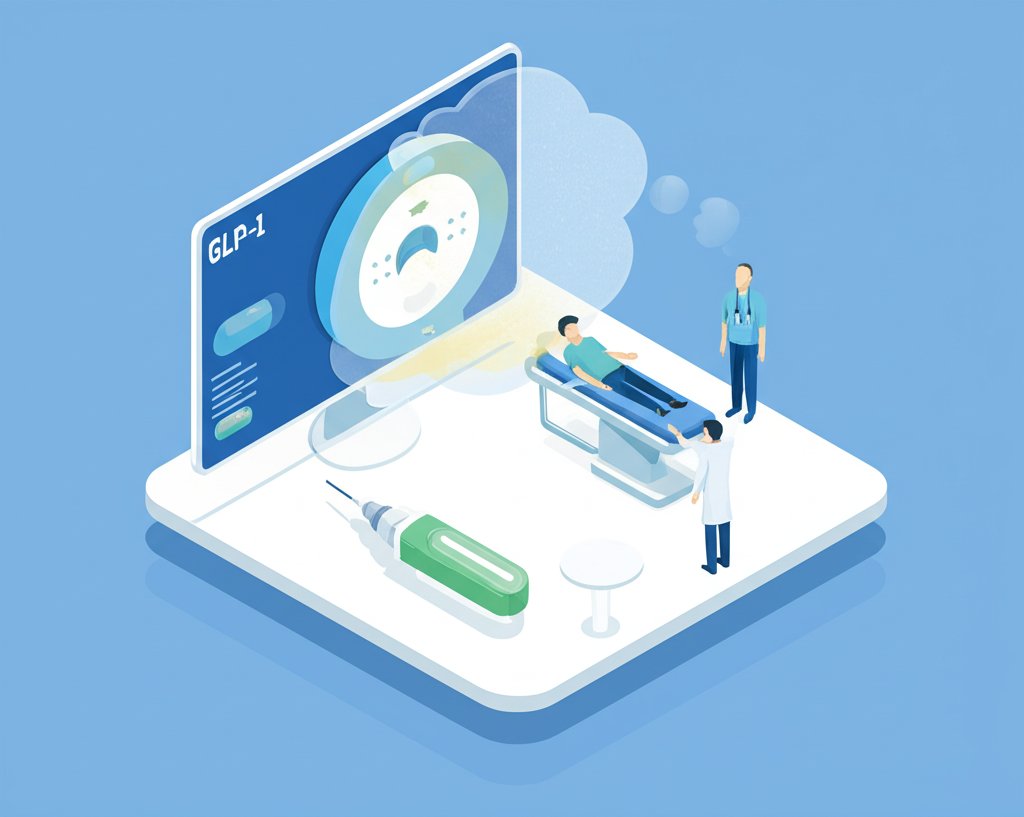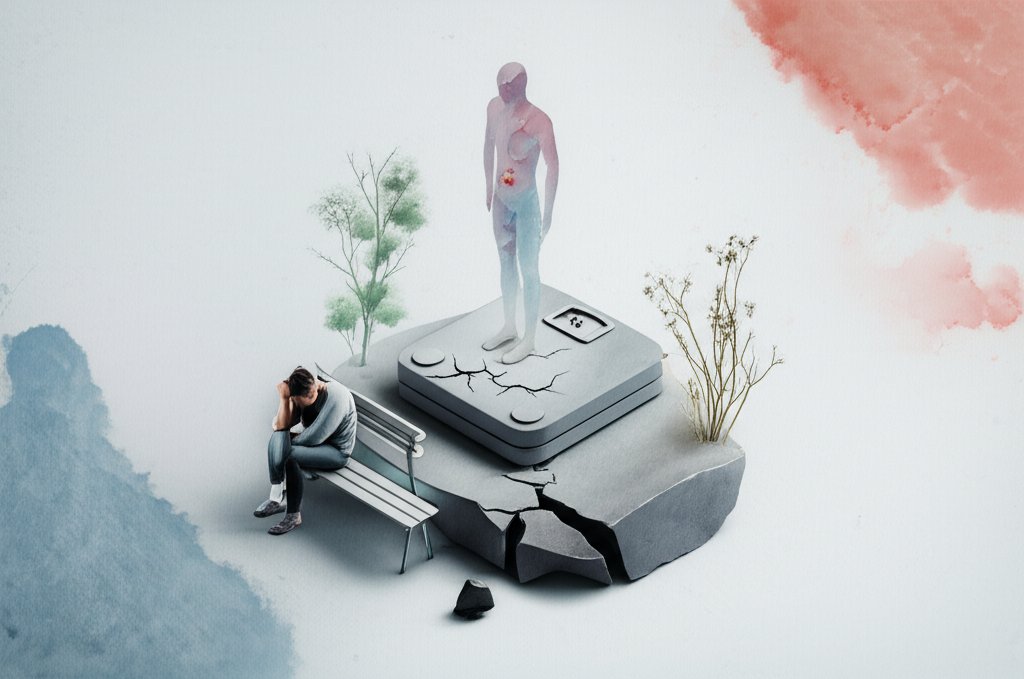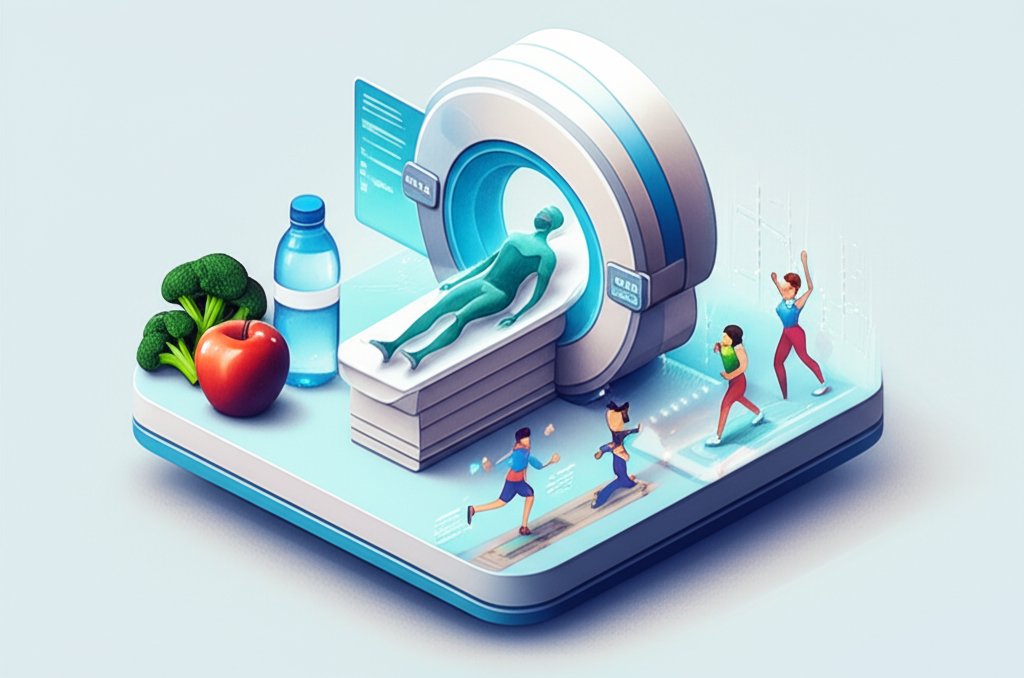The rise of powerful weight loss drugs like Ozempic, Wegovy, and Zepbound has been nothing short of revolutionary. For many, they represent a long-awaited breakthrough in managing obesity and related health conditions. But as millions adopt these medications, a clearer and more complex picture of their side effects is emerging—and it extends far beyond an upset stomach.
A startling new study reveals these popular drugs can interfere with crucial medical imaging, potentially masking signs of cancer. This development adds a new layer of urgency to understanding the full spectrum of weight loss side effects, from common daily discomforts to rare but life-altering complications. This guide will walk you through what’s known, what���s new, and how to navigate these challenges safely.
The Newest Concern: How GLP-1 Drugs Can Obscure Cancer Scans

Perhaps the most unexpected side effect to surface involves PET-CT scans, a critical tool for detecting diseases like cancer. A recent study from Alliance Medical Ltd. found that patients taking GLP-1 medications—the class of drugs that includes Ozempic and Wegovy—showed unusual patterns on their scans.
These scans work by using a radioactive tracer called FDG, which is absorbed by cells with high metabolic activity, like cancer cells. However, researchers observed that in patients on these drugs, the tracer was absorbed in ways that could either hide cancerous growths or make healthy tissue appear diseased. Dr. Peter Strouhal, the study’s lead author, now urges imaging teams to meticulously document a patient’s medication history to help them correctly interpret the scan results and avoid a devastating misdiagnosis.
Understanding the Most Common Weight Loss Side Effects
While the imaging complication is a serious new concern, the majority of users will encounter more common, gut-related issues. These drugs work in part by significantly slowing down how quickly your stomach empties, which is great for feeling full but can lead to a host of uncomfortable symptoms.
The most frequently reported side effects include:
- Nausea
- Diarrhea
- Vomiting
- Constipation
- Abdominal pain and bloating
- Heartburn, burping, and acid reflux
- Headache and fatigue
These symptoms are usually most intense when you first start the medication and often subside as your body adjusts. However, for about 10% to 20% of users, the discomfort doesn’t fade. This persistent feeling of malaise can be similar to the body’s response to an illness, which helps explain Why we lose weight when sick, as appetite plummets when you don’t feel well.
Beyond Discomfort: Navigating Serious Health Risks

Beyond the common gastrointestinal complaints lie a number of more severe, though less common, potential side effects. It’s crucial to be aware of these red flags so you can discuss them with your doctor.
Gut Paralysis and Blockages
The same mechanism that keeps you full—delayed gastric emptying—can, in some cases, go too far. This has been linked to gastroparesis, or “stomach paralysis,” a condition where the stomach cannot empty itself of food in a normal way. In 2023, the FDA also updated the label for semaglutide (Ozempic/Wegovy) to include a warning about the potential for ileus, a type of non-mechanical bowel obstruction.
The Hidden Costs of Rapid Weight Loss
Shedding pounds quickly is often the goal, but it can come with unintended consequences. Significant weight loss can sometimes include a loss of lean muscle mass and bone density if not managed with proper nutrition and resistance training. Other reported issues tied to GLP-1 drugs include hair loss, though this is often temporary.
Other Potential Red Flags
A small number of patients may experience other serious health issues. While the risk is low, it’s important to know the signs. These can include:
- Pancreatitis: Severe, persistent pain in your abdomen could signal an inflamed pancreas.
- Gallbladder Problems: This can include gallstones or inflammation of the gallbladder.
- Kidney Issues: In rare cases, severe vomiting and diarrhea can lead to dehydration and acute kidney injury.
- Thyroid Cancer Risk: Animal studies showed a potential link to medullary thyroid cancer, but the risk in humans remains unconfirmed.
- Hypoglycemia: For patients with type 2 diabetes, there is a risk of blood sugar dropping too low (below 70 mg/dL).
Smart Strategies to Manage and Minimize Side Effects
Fortunately, you are not powerless against these side effects. Working closely with your doctor, you can adopt several strategies to make your treatment more tolerable and effective.
- Start Low, Go Slow: Doctors almost always begin patients on the lowest possible dose and gradually increase it over several weeks or months. This “titration” process gives your body time to adapt and minimizes the initial shock to your system.
- Rethink Your Plate: Since your stomach empties slowly, large meals are a recipe for discomfort. Opt for smaller, more frequent meals, chew your food thoroughly, and stop eating when you start to feel full. Avoiding greasy, fatty, and overly sugary foods can also prevent nausea and reflux.
- Hydration is Key: Vomiting and diarrhea can quickly lead to dehydration. Make a conscious effort to drink plenty of water and other clear fluids throughout the day to stay hydrated and support your overall health.
- Listen to Your Body: Don’t try to “tough out” severe symptoms. If you’re experiencing persistent vomiting, intense abdominal pain, or other concerning signs, contact your healthcare provider immediately.
- Keep a Symptom Journal: Tracking what you eat and how you feel can help you and your doctor identify patterns. This information can be invaluable for adjusting your diet or medication plan to find what works best for you.
As these medications become a mainstay in modern medicine, our understanding of their full impact will continue to evolve. The conversation is no longer just about their effectiveness, but about how to use them with wisdom and care. An open, ongoing dialogue with your doctor is the single most important tool you have to ensure your weight loss journey is both successful and safe.
- Divided Food Storage Containers Transform Meal Prep and Portion Control - February 8, 2026
- Divided Food Containers Are Meal Preps Secret Weapon - February 7, 2026
- Food Kits for Adults Offer Fun DIY Cooking Adventures - February 6, 2026










